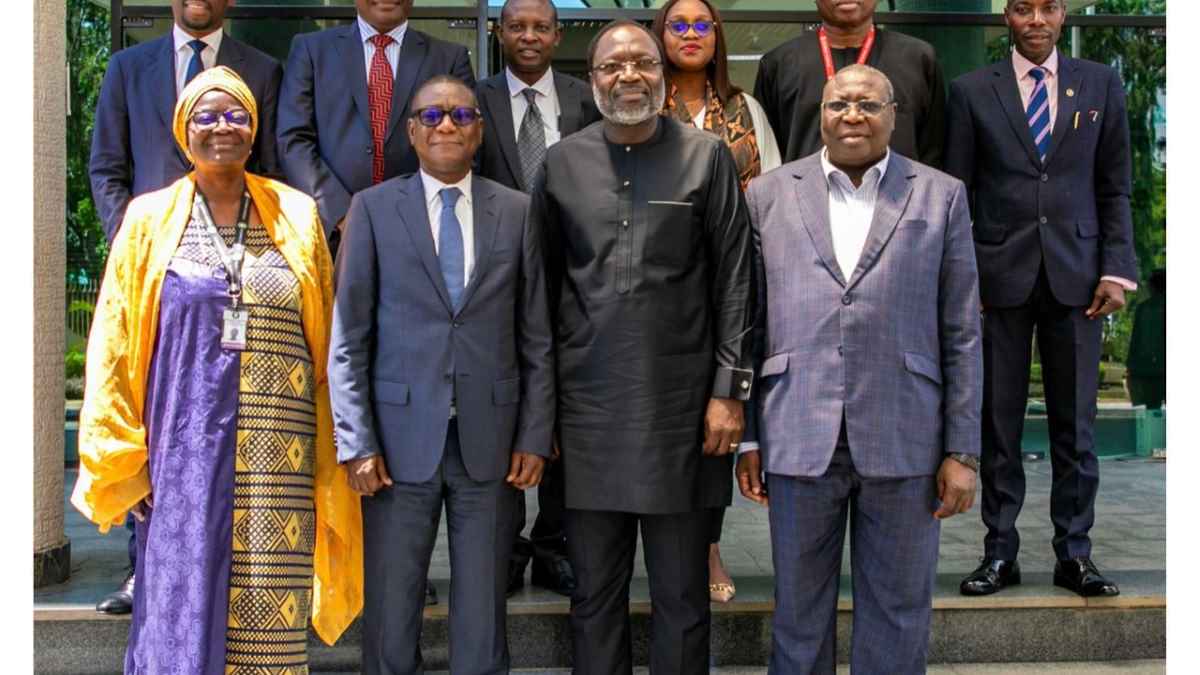The Bank Group approved the West Africa RISP 2020-2025 in May 2020 to support regional integration efforts in West Africa
ABIDJAN, Ivory Coast, September 21, 2023/APO Group/ —
The Economic Community of West African States (ECOWAS) and the African Development Bank Group (www.AfDB.org) have concluded consultations for the mid-term assessment of the West Africa Regional Integration Strategy Paper (RISP) 2020-2025 (https://apo-opa.info/48mtfVb).
The Bank Group approved the West Africa RISP 2020-2025 in May 2020 to support regional integration efforts in West Africa. With an initial indicative investment plan of $4.52 billion, the West African RISP focuses on improving resilient infrastructure and supporting the development of regional businesses.
The meetings took place from 5 to 15 September 2023 at the headquarters of the ECOWAS Commission in Abuja, Nigeria. During the period, the two sides assessed the key midterm results alongside a performance review of the Bank’s regional portfolio.
The evaluation focused on current issues around West African integration: challenges, opportunities, and prospects. It also reviewed the Bank’s strategic direction and priority intervention areas, priority projects common to the two institutions and the state of their cooperation. It also assessed the state of collaboration between the Bank and ECOWAS. It fostered a consensus on the outlook, direction and areas of intervention within the framework of the Bank’s future priority projects.
Other pertinent issues, including economic affairs and agriculture, human development and social affairs, infrastructure, energy and digitalisation, political issues, peace and security, transport, and information and communication technologies, were also discussed.
Mr Lamin G. Barrow, Director General of the Nigeria Country Department who led the Bank delegation, underscored the growing partnership between ECOWAS Commission, the Bank and the regional institutions in the midterm assessment.
Mr Barrow said: “After three years of implementing our regional strategy in a context marked by a series of shocks — health, security, socio-political, climate, environmental, food insecurity risks and a wave of unconstitutional power change — there was a need to take stock, draw lessons and propose corrective measures for immediate implementation over the remaining two years, that is, from 2024 to 2025.”
Under its Regional Integration Strategy Paper, the Bank has mobilized $884.14 million since 2020, covering 70 new operations
ECOWAS Commission President Mr Omar Alieu Touray said, “For regional integration institutions like ECOWAS, cooperation with the African Development Bank is essential, and implementation of the RISP is at the heart of our mandate. That is why we must seize this opportunity to interact and chart the way forward for our two institutions. This means consolidating gains and repositioning our activities and institutions to achieve tangible results. The challenges ahead are colossal.”
During the mission, the Bank Group delegation discussed the Bank Group’s Strategy for Addressing Fragility and Building Resilience in Africa (2022-2026) (https://apo-opa.info/3EL47Kj). The Bank Group also presented an overview of the “Security-indexed Investment Bonds” at the meeting.
The studies for the Abidjan-Lagos highway project were reviewed during the portfolio evaluation. This paves the way for the construction to start in early 2024 of a 1028-kilometre highway linking Côte d’Ivoire, Ghana, Togo, Benin and Nigeria.
Under its Regional Integration Strategy Paper, the Bank has mobilized $884.14 million since 2020, covering 70 new operations, almost double the 38 projects planned initially.
The projects include the Rosso Bridge between Senegal and Mauritania; the Trans-Gambia Corridor with the bridge over the Gambia River between Senegal and Gambia; the Niger-Algeria Trans-African Highway Project; phase 2 of the Lomé-Cotonou Highway Refurbishment Project; the Mano River Transport Development and Facilitation Project, etc.
Principal Regional Integration Coordinator for w Central and West Africa, Youssouf Kone, and Ometere Omoluabi Davies, Principal Regional Integration Coordinator for the Nigeria Country Departmentpresented the implementation status of the various projects, lessons learned and recommendations. Topics covered included innovation in co-financing methods and resource mobilization, refining responses to fragility and strengthening the public’s resilience, reinforcing project implementation units, etc.
In her remarks during the conclusions of the mission, Ms Marie-Laure Akin-Olugbadé, the Bank’s Vice-President in charge of Regional Development, Integration and Service Delivery, said, “The Bank Group will continue to provide decisive support to Member States and the ECOWAS Commission under the High-5 priority of “Integrate Africa”.
She called for the Bank’s interventions in the most vulnerable segments of the population, including young people and women, to provide them with economic opportunities while strengthening institutional governance, the resilience of the public and addressing the causes and effects of regional instability. “Without stability and peace, there can be no development and no regional integration,” she concluded.
Other members of the Bank delegation were Mr Joseph M. Ribeiro, Acting Director General of West Africa; Mr Jean-Guy Afrika, Acting Director of the Regional Integration Coordination Office; Mr Yero-Baldeh, Director of the Transition States Coordination Office; and Mr Bruno Boedts, implementation support Manager for regional operations.
Distributed by APO Group on behalf of African Development Bank Group (AfDB).


 Business5 days ago
Business5 days ago
 Business4 days ago
Business4 days ago
 Business5 days ago
Business5 days ago
 Business5 days ago
Business5 days ago
 Events4 days ago
Events4 days ago
 Energy3 days ago
Energy3 days ago
 Energy4 days ago
Energy4 days ago
 Events4 days ago
Events4 days ago













